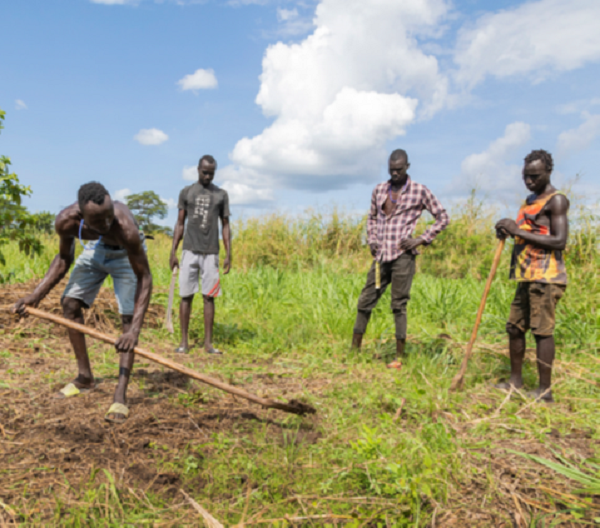Sustainable Support to Persons Displaced by Conflict and Natural Disasters

Introduction:
Ethiopia is facing a serious crisis. As of 2023, 4.4 million people have had to leave their homes (UNHCR). This large movement of people is mainly caused by conflict and climate issues like droughts and floods. As a result, many are experiencing a lack of food, an increase in violence against women, and difficulties in getting basic services. Vulnerable groups, especially women and children, are the most affected. This situation highlights the urgent need for effective and lasting solutions to help those who have been displaced and the communities that take them in.
This three-year initiative (2024–2026/2027) unites various partner organisations to collaborate with local Ethiopian authorities on a project featuring two primary components:
- Enhancing livelihoods through skill development and vocational training in agriculture and other fields while ensuring access to financial services and increasing employment opportunities.
- Supporting Sustainable Water, Sanitation, and Hygiene (WASH) services, which include infrastructure upgrades, effective management and maintenance of facilities, capacity building, and encouraging better hygiene and sanitation practices.
Additionally, three cross-cutting components focus on social cohesion, protection, and data collection, analysis, and capacity development.
The programme uses a broad approach to meet urgent needs while helping communities become stronger over time. It provides immediate help and supports long-term recovery for people who have been displaced, as well as local communities.
The goals include stabilising affected regions, reducing vulnerabilities, and strengthening resilience against future crises through a collaborative and inclusive approach
Objectives:
The programme's overall objective is to sustainably enhance the protection and response to basic needs for forcibly displaced persons and host communities in Ethiopia, emphasising areas affected by natural and man-made disasters.
The programme's special objectives (SO) are:
- To improve the living conditions of IDPs and host communities through access to livelihoods, and financial and economic support opportunities;
- To improve access to Water, Sanitation and Hygiene (WaSH) for IDPs and host communities;
- To strengthen social cohesion and protection services through an area-based community based approach substantiated by needs-based data collection and capacity building of relevant stakeholders;
Expected Results:
- Reconstruct and rebuild WASH services in schools and health facilities for at least 200,000 direct beneficiaries;
- Rehabilitate/reconstruct over 35 water supply schemes;
- Provide livelihood and employment opportunities to over 10,000 direct beneficiaries plus their families;
- Provide grants to more than 3,500 people (i.e. seed funding for business groups) and coaching in financial literacy;
- Support at least 16 Vocational Schools/Training Centers, incubation centres, and municipal employment agencies to provide inclusive training opportunities;
- Support at least 80 business groups in the creation of sustainable livelihoods through the rehabilitation and maintenance of WASH infrastructure;
- Issue a National ID containing Fayda Identification number to at around 50,000 IDPs;
- Support at least 8,000 people with specialised activities against gender-based violence;
- Support over 700 most vulnerable households through multi-purpose cash grants or vouchers;
- Train over 1,000 Community leaders and influencers (CSOs, local government staff, individuals, etc.) on the reduction of stigma related to sexualized and gender-based violence (SGBV), community dialogue and promotion of nonviolence;
- Reach over 120,000 people with messages through outreach on community dialogue, nonviolence and peaceful co-existence and SGBV and Mental Health and Psychosocial Support Services (MHPSS);
- Establish Community Mental Health and Psychosocial Support Services (MHPSS) pathways in all target areas;
- Establish 33 youth clubs will promote life skills and peace education in schools and communities.




